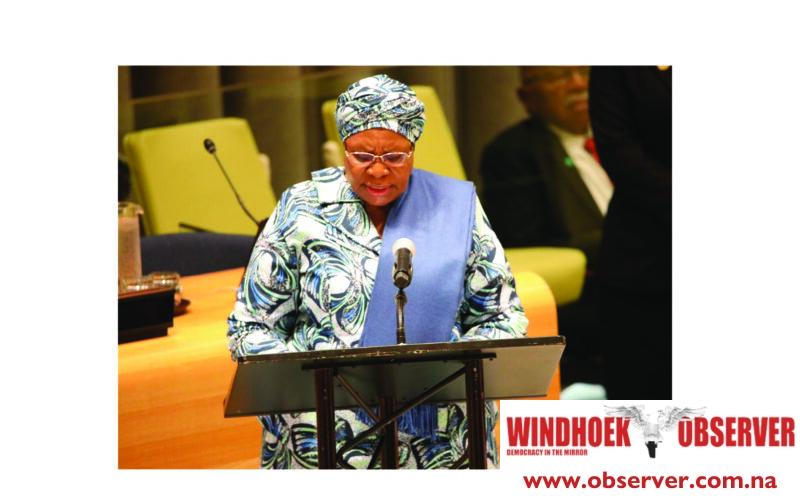Justicia Shipena
President Netumbo Nandi-Ndaitwah has called for the responsible use of nuclear energy. She urged that safeguards be implemented to ensure transparency and safety in the development of nuclear technology.
Speaking on Friday in the United States at the United Nations high-level meeting to commemorate the International Day for the Total Elimination of Nuclear Weapons, Nandi-Ndaitwah said Namibia supports the peaceful use of atomic energy while strongly opposing nuclear weapons.
“Namibia calls for the accountable use of nuclear energy and ensures that comprehensive safeguards are in place to remove any limitations and restrictions on the use of nuclear material, equipment and technology for peaceful purposes,” she said.
She said transparent cooperation and technology sharing are essential for nuclear energy to improve the quality of life globally.
She also highlighted the need to strengthen collaboration in nuclear medicine and cancer care, particularly through technology transfer to developing countries.
Namibia is the world’s third-largest uranium producer, with an estimated 5 500 to 6 500 tonnes expected in 2025, accounting for 11 to 12% of global supply.
Nandi-Ndaitwah reaffirmed Namibia’s commitment to nuclear disarmament, citing Hiroshima and Nagasaki as reminders of the catastrophic consequences of nuclear weapons.
She warned that modernising nuclear arsenals remains a threat.
“While the final objective of the efforts of all states should continue to be the general and complete disarmament under effective international control, the immediate goal is the elimination of the danger of a nuclear war and implementation of measures to avoid an arms race and clear the path towards lasting peace,” she said.
Namibia is seeking membership in the Nuclear Suppliers Group (NSG), which regulates nuclear trade to ensure it is used for peaceful purposes.
Last month, the minister of Information and Communication Technology Emma Theofelus announced that the cabinet had approved the move.
The ministry of International Relations and Trade would lead the application process, which includes updating Namibia’s dossier, serving as the primary point of contact, and establishing an interministerial committee to implement NSG guidelines.
The NSG is made up of 48 nuclear supplier countries that aim to prevent the spread of nuclear weapons by controlling the transfer of nuclear materials, equipment, and technologies, including dual-use items.
Nandi-Ndaitwah said Namibia’s application reflects its commitment to non-proliferation and the responsible use of nuclear resources.
She urged nations to remain committed to advancing nuclear disarmament, non-proliferation, and the peaceful use of nuclear energy.
“It is imperative that we continue working together, guided by principles of international cooperation and multilateralism, to ensure a safer world for all mankind and for future generations,” she said.
UN secretary general Antonio Guterres also addressed the meeting, warning that “nuclear weapons deliver no security, only the promise of annihilation.”
“We are sleepwalking into a new nuclear arms race. More complex, more unpredictable, and even more dangerous. New technologies and new domains of conflict have erased the margin for error. From cyberspace to outer space, from hypersonic missiles to deep sea drones, the risks of escalation and miscalculation are multiplying. This is not just a crisis of weapons. It is a crisis of memory, responsibility, and courage.”
According to the UN, more than 12,000 nuclear warheads still exist today, and over half of the world’s population lives in countries that either possess nuclear weapons or are part of nuclear alliances.
The International Day for the Total Elimination of Nuclear Weapons is observed on 26 September each year. Established in 2013, it promotes the global cause of nuclear disarmament.




